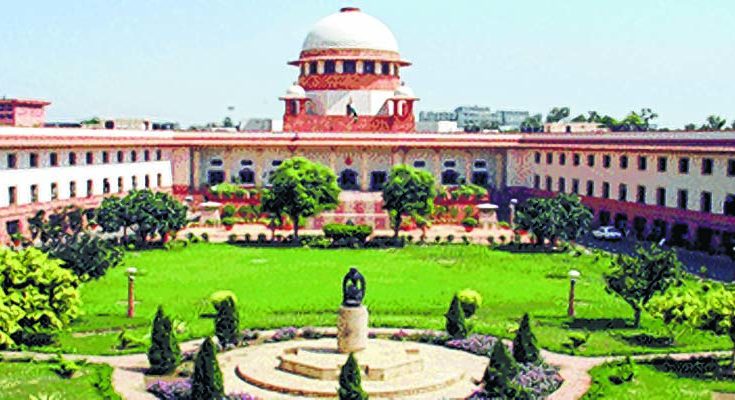
The panel – comprising Joint Secretary (North East), the Ministry of Home Affairs and two other members to be nominated by the Union Government – has been given powers ranging from ensuring strict action in incidents of racial discrimination, racial atrocities and racial violence, and suggesting measures to curb such hate and racial crimes.
The Court also told the Government that the effective monitoring mechanism suggested by the MP Bezbaruah Committee in its report should be implemented and “should not like innumerable instances of its ilk, languish in dusty shelves of long forgotten archives”.
It was also of the view that involvement of the law enforcement machinery is alone not sufficient to resolve the problem and stressed that mindsets have to be changed including in universities, colleges and educational institutions, places of work and in society.
After perusing report of the panel headed by Bezbaruah, a former bureaucrat and member of the North Eastern Council, and the Centre’s response to it, a bench headed by Chief Justice TS Thakur said, “We are of the view that in order to enhance a sense of security and inclusion,…the Ministry of Home Affairs should take proactive steps to monitor the redressal of issues pertaining to racial discrimination faced by citizens of the Nation drawn from the North East.
“For that purpose, a regular exercise of monitoring and redressal should be carried out by a committee consisting of the following members – Joint Secretary (North East), Ministry of Home Affairs and two other members to be nominated by the Union Government (one of whom should be a public figure),” it said.
However, the Court refrained from passing any direction on the proposal for amending the Indian Penal Code by insertion of two new provisions – sections 153C and 509A – which was opposed by the Centre on the ground that sections 153A, 153B and 505(2) already exist as a part of the penal provision and covers the situation of racial crimes.
Also, the Court took note of the Centre’s submission that the proposal was under examination and said “whether the law should be amended is for the Union Government to decide in its considered assessment of the situation, the nature of the problem and the efficacy of existing provisions. A mandamus to legislate cannot be issued.”
The apex Court, which dealt with several incidents of racial discrimination and crimes against the people of North Eastern region, said, “The involvement of the law enforcement machinery is alone not sufficient to resolve the problem.
“Mindsets have to be changed including in universities, colleges and educational institutions, places of work and in society. Sensitivity and inclusion have to be fostered. In order to achieve this, greater awareness of the history and the rich cultural traditions of the North East is required to be inculcated. The problems faced by persons from the North East traverse a whole range of issues, from the mundane issues of daily life to matters of education, employment, social security and the fundamental right to live in dignity.
“The Governments, both at the Centre and in the States, have a non-negotiable obligation to take positive steps to give effect to India’s commitment to racial equality. This commitment is embodied in Constitutional rights, fundamental duties, statutory provisions and in the international obligations which have been assumed by India,” the bench also comprising justices DY Chandrachud and L Nageswara Rao said.
In a slew of directions, the bench said the newly constituted committee’s work should be widely publicised in the electronic and print media, including in the North Eastern States, and the panel should be accessible to grievances, suggestions and complaints.
It said the panel should meet periodically and preferably at monthly intervals to monitor the redressal of all such grievances including the implementation of the recommendations of the Bezbaruah committee, to the extent to which they have been accepted by the Centre.
The bench also enumerated the functions likely to be carried out by the panel which would include monitoring, overseeing, pursuing and reviewing the implementation of the Bezbaruah Committee’s July 11, 2014 report.
Further, the committee will monitor the initiatives taken by the Government to curb and deal with the incidents of racial discrimination/racial atrocities and racial violence and monitor action on such incidents and suggest measures and ensure strict action.
The committee will also receive, consider and entertain complaints from individuals and groups of individuals who claim to be victims of racial abuse/ racial atrocities/ racial violence/ racial discrimination and forward it to the National Human Rights Commission and the State Human Rights Commissions and to the concerned police station as the case may be for enquiry and necessary action.
The committee will issue necessary directions including calling for reports on incidents of racial discrimination/ racial atrocities/racial violence from the states and Union Territories, it said, adding that a decision may also be taken by the Centre on whether any of the other recommendations should be accepted.
The apex Court pronounced the verdict while addressing the petition filed by Karma Dorjee and others following several incidents of hate crimes in Delhi against persons hailing from the North East. The petitioners had said that the Bezbaruah panel had recommended changes in the IPC to curb and punish incidents of racial violence targeting people from the North East.
The petition had alleged that people from North Eastern region, who move out of their States in search of better opportunities in studies and jobs, were subjected to racial taunts and violence on a daily basis due to their physical appearance at the hands of people of their own country.
The Bezbaruah panel was set up by the Home Ministry on February 5, 2014, to suggest “suitable remedial measures” which could be taken, in the wake of attacks on the people from the North East in Delhi and other parts of the country including the death of youth Nido Tania, a student from Arunachal Pradesh. PTI
Source: The Sangai Express